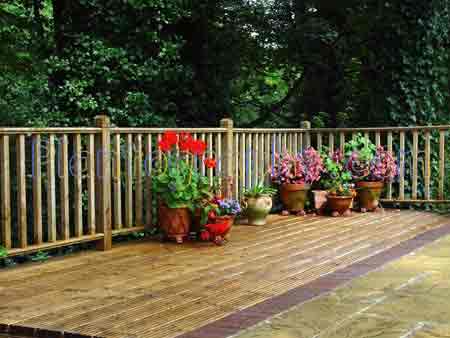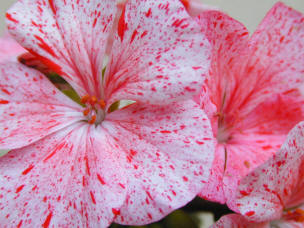Earthworms in the garden - in lawns and grass
Look after the Earthworm - it is your friend!
I
have lectured on the subject of Earthworms -
worms - (Lumbricus terrestris or Helodrilus
caliginosus - the smaller ones.), but it was not until
I moved house to an area with very little top-soil -
the North Downs in Kent - that I fully appreciated
their true worth of earthworms. The few
centimetres of top-soil there - over several metres
depth of chalk - was impossible to dig, without
bringing the chalk to the top.
Earthworms changed that soil for me over the course of five or so years. All I had to do was to feed them - with a generous organic mulch each year! After these few years, I could simply slide a fork into the soil. No more 'digging' for me, whilst there is an army of 'helpers' willing to do the job!
Some people believe that earthworms are harmful. Totally untrue!
Earthworms pull partly-decomposed organic material down into the soil
for a good feast. The
organic matter is then broken down further in the earthworm, before
being excreted as 'worm casts'. These are easily converted into
nutrients by the soil's micro-organisms. The nutrients are readily taken
up by developing plants.
Worm casts in the garden, have a nutrient level and organic matter level much higher than that of the surrounding soil. Each day worms produce nitrogen, phosphorous, potassium, calcium carbonate and many micro nutrients in a form that all plants can use.
Facts
A small 400 sq ft garden with a low worm population of only 5 worms/cubic foot will be provided with over 600 lbs (about 1/3 lb per worm) of top-grade fertilizer by the worms, each year.
They can also help to bring an acid soil back to a more neutral ph over time. Their casts contain calcium carbonate.
Lawns - A right pain in the grass
Worms can
be a bit of a pain in nicely manicured lawns when they
leave their worm casts all over the place - normally in
the autumn. Even so, I would not advocate any chemical
control for worms in the grass areas!. Boxing clippings
from the lawn will go some way to lessen the problem - the
worms thrive upon them. However, even the best tended
lawns have an adequate supply of dead and rotten grass
just below the green sward for worms to feed upon.
They seem to prefer alkaline rather than acid soils (on
lawns at any rate), so long term applications of high
nitrogen fertilizers will help.
The best way to get rid of worm cast, is by brushing them
off - when they are dry. A wire rake is good for this -
better than a brush. Or if you have a large lawn, a
'drag-mat' made from wire mesh is a good idea. The
earthworms that throw casts in the lawn, are not
beneficial insofar as drainage and aeration are concerned.
Feeding Habits
Organic matter eaten by earthworms consists of rotting plant material and animal parts. They also eat soil harmful micro-organisms such as bacteria, fungi, and nematodes. Earthworms will feed on roots or other parts of plants that have been decayed by other organisms; but they do not feed on healthy plants.
Habitat
Earthworms are generally found in the top 10 0r so few
centimetres of the soil. They breath through their skin
and therefore need a moist environment, so if the soil
dries excessively, they will burrow deeper. (Up to 2
metres) They are basically nocturnal - coming to the
surface at night when temperatures are lower and humidity
higher.
Sandy and acidic soils are their least favourite habitats.
In addition to recycling organic matter, worms are great for improving soil structure - as I found out! Their borrowing action helps to improve aeration, moisture retention, and water penetration.
So, if you want more earthworms - apply regular dressings of organic matter mulch to the top surface of your garden. The worms will do the digging for you!
Best Selling Gardening Products
Popular Gardening Sections
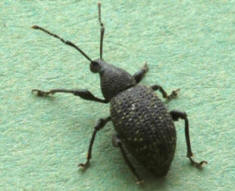
Problems
Identify Weeds in The Garden - How to deal with weeds. Diseases and Pest which harm your garden and plants, learn how to prevent, deter and erradicate your garden problems.
Garden Problems
Pruning
Pruning Guide. Shrubs flower better with correct pruning. Many illustrations and examples of what to do - and when. Includes evergreens, roses, flowering shrubs, spring flowering shrubs and pruning for stem effect. This is our most viewed and comprehensive section,
Pruning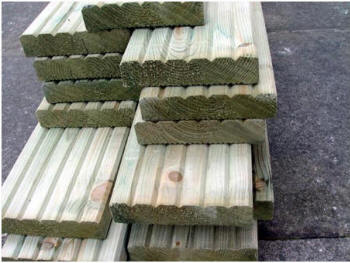
Gardening Businesses
Gardening Businesses listed in the UK counties and USA states. County and State Listings of businesses involved in Garden supplies and services. If you wish to be added to the Directory, please send us your information. Having problems, use the search box
Businesses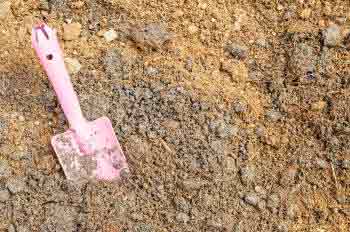
Gardening
In this section you will learn about Gardening Basics, Containers, Landscaping, Propagation and Soil.
Gardening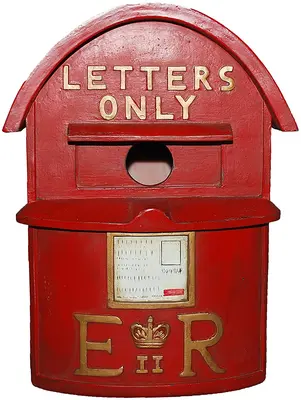
Gardening Gifts
Gardening Gifts and Reviews, Read Before you Buy
- Gardening Gifts Ideas
- Gifts For Her
- Gifts For Men
- Power Tool Gifts
- Cheap Gifts
- Personalised Gifts
- Wildlife Gifts
- Family Gifts

